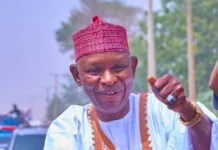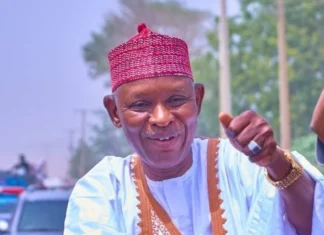By Aiyeku Timothy
The candidate of the All Progressives Congress (APC) Tokunbo Abiru, was declared winner of the Lagos East Senatorial by-election by the Independent National Electoral Commission (INEC), on Sunday.
Abiru won in the Saturday poll with a total of 89,204 votes while Babatunde Gbadamosi, his Peoples Democratic Party (PDP) counterpart, secured 11,257 votes.
Both candidates are, however, not new in the political space of the Senatorial District as the families have been in control of political power.
This is coming few weeks after the intense #EndSars protest that was not only meant to put an end to police brutality but to usher in a revolution for a new Nigeria.
It was anticipated that neither the APC and PDP would continue their hegemony. However, it didn’t happen as reflected in the election.
History recalls that in a similar Senatorial election in 1979, about 41 years ago, the late Justice Abiru, (Senator-Elect Tokunbo Abiru’s father) as Unity Party of Nigeria (UPN) candidate defeated National Party of Nigeria (NPN) candidate, late Chief SOG Gbadamosi, (PDP’s Gbadamosi’s grand-father) to represent the Senatorial District between 1979-1983.
The Abiru’s political dynasty stretches to the Lagos House of Assembly where Tokunbo’s elder brother, Lateef Rotimi, currently represents Bariga.
Unless overturned in court in an unlikely scenario, Abiru will represent the Lagos East Senatorial District for the next four years.
The senatorial seat became vacant following the death of the former occupant, Bayo Oshinowo, earlier this year.
Abiru made it clear that the electorate ensured his victory and that of the party, while stressing that they cannot afford to cease to function.
“Now that we have secured this Senatorial mandate; we cannot afford to fail our people.
“We cannot afford to fail those who voted for us; those who chose not to vote for us for whatever reasons and those who did not vote at all. We cannot afford to betray the invaluable trust our people reposed in us as a political party and as their representatives in government.”











